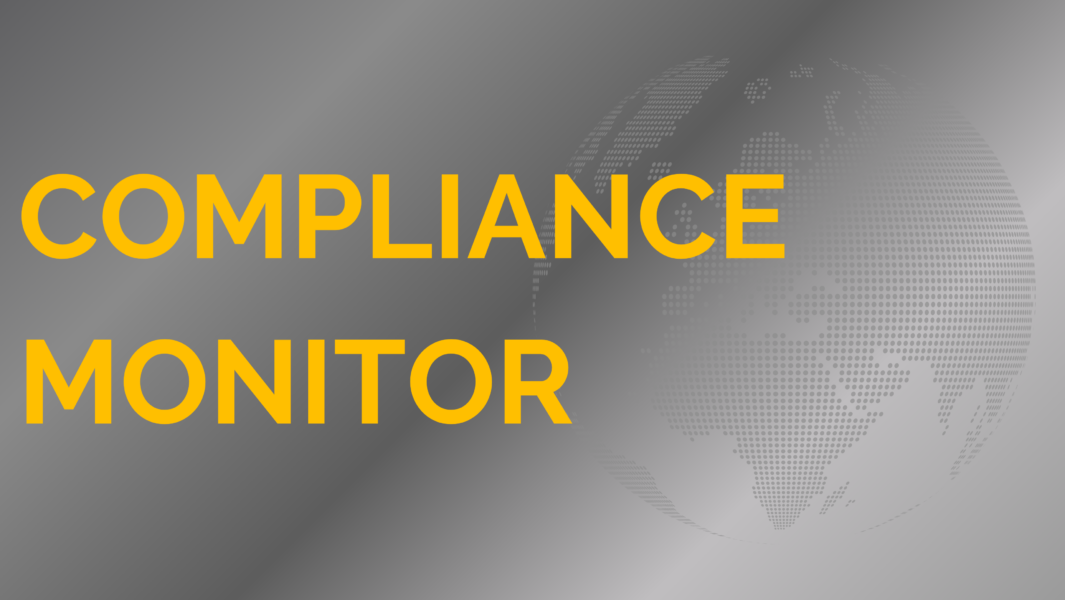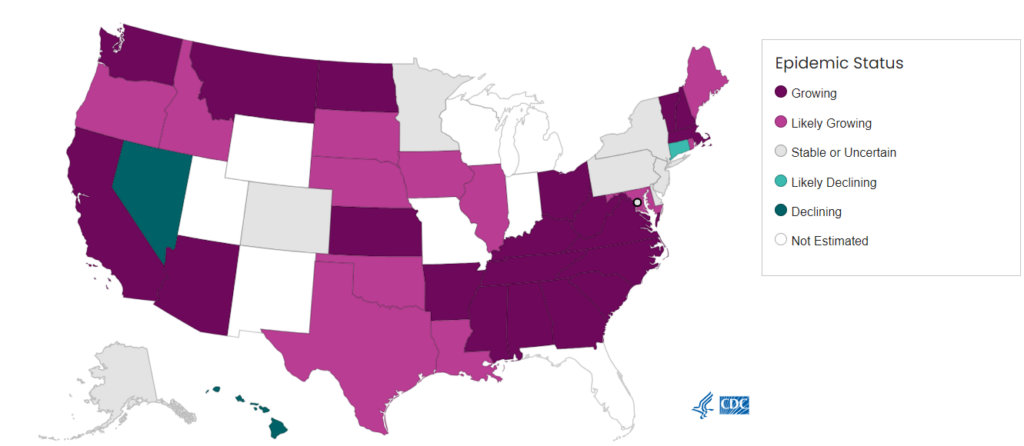
Compliance Monitor (8/16/2024)
CHAP is always seeking resources and insights to enhance the knowledge of partners and customers.
Be sure to download CHAP’s Compliance calendars for home health and hospice.
Top Items
Free Webinar – CMS Posts Final Hospice Rule: Quality Changes and Regulatory Requirement
CMS posted the final rule for hospice providers which drives big changes into motion for 2025. The Final FY 2025 Hospice Wage Index and Payment Rate Update/Quality Reporting Rule
Learn the content and implications of the final rule in a free webinar offered by CHAP on August 21, 2024, at 1 pm EDT.
Register HERE.
2024 Home Health and Hospice MAC Collaborative Summit
Registration for the 2024 Home Health and Hospice MAC Collaborative Summit is open. The theme is Perfecting Performance by Breaking Down Barriers and will be hosted in Las Vegas, NV from October 2 to 4. National Government Services, Inc. (NGS), Palmetto GBA, and CGS Administrators have designed this unique collaborative educational opportunity for home health and hospice providers from every state and Medicare jurisdiction. The summit is a great opportunity to hear from your MAC on best practices and upcoming changes and connect with other providers.
Resources & Flexibilities to Assist with the Public Health Emergency in Florida, Georgia, and South Carolina
CMS announced additional resources and flexibilities available in response to Hurricane Debby, now Tropical Storm Debby, in the states of Florida, Georgia, and South Carolina. CMS is working closely with these states to ensure those affected by this natural disaster have access to the care they need — when they need it most.
On August 6, 2024, HHS Secretary Xavier Becerra determined that a public health emergency exists in Florida and has existed since August 1, 2024. On August 7, 2024, Secretary Becerra determined that a public health emergency exists in Georgia and South Carolina and has existed since August 4, 2024.
CMS stands ready to assist with resources and waivers to ensure hospitals and other facilities can continue to operate and provide access to care to those impacted by the consequences of the tropical storm.
More Information:
Current Emergencies webpage
Hospice Updates
Hospice Payments: FY 2025 Update
Learn about updates effective October 1, 2024 (PDF):
- Payment rates
- Inpatient and aggregate caps
- Wage index
Value-Based Insurance Design Model: Hospice Benefit Component Calendar Year (CY) 2024 Technical and Operational Guidance on the Conclusion of the Hospice Benefit Component
CMS published technical and operational guidance for providers participating in the model. The guidance advises providers to continue to provide care per their contract through the end of calendar year 2024. Enrollees of the VBID hospice component will not be included in the inpatient or aggregate payment caps.
Blumenthal & Barragán Introduce Bicameral Legislation to Improve End-of-Life Care
U.S. Senator Richard Blumenthal (D-CT) and U.S. Representative Nanette Barragán (D-CA) today introduced the Compassionate Care Act, legislation to promote advance care planning and end-of-life care. Many Americans do not have plans in place in the event they experience severe illness. In order to help patients access the care they need and that is right for them, the Compassionate Care Act provides critical resources to educate patients and providers, develop core end-of-life quality measures, and expand access to advance care planning via telehealth.
Read the press release https://www.blumenthal.senate.gov/newsroom/press/release/blumenthal-and-barragan-introduce-bicameral-legislation-to-improve-end-of-life-care
Home Health Updates
CDC – Current Epidemic Growth Status (Based on Rt) for States
As of August 06, 2024, we estimate that COVID-19 infections are growing or likely growing in 32 states, declining or likely declining in 3 states, and are stable or uncertain in 8 states.

https://www.cdc.gov/forecast-outbreak-analytics/about/rt-estimates.html
Reminder: Submit Your Comments on the 2025 Home Health Prospective Payment System Proposed Rule
The deadline to submit comments on the 2025 Home Health Prospective Payment System proposed rule is Monday, August 26, 2024. Medicare home health providers are encouraged to submit their comments individually by the deadline.
The HHVBP CY 2024 Annual Performance Report – What You Need to Know!
The Centers for Medicare & Medicaid Services (CMS) is hosting a webinar on Tuesday, August 13 at 3:00 p.m. ET, to educate providers about the Calendar Year (CY) 2024 Annual Performance Report (APR). This webinar will include a discussion of the CY 2024 APR, how to interpret the report, the appeals process, the applicable quality measure results based on CY 2023 performance, and the corresponding payment adjustment applied to FFS claims submitted for services with a through-date in the CY 2025 payment year.
Registration is open and can be completed online through Zoom.
NOW AVAILABLE: CMS National Summary Report, Executive Summary, and National Summary Results workbook for the 2023 Post-Acute Care Health Equity Confidential Feedback Reports
In October 2023, the Centers for Medicare & Medicaid Services (CMS) released two Health Equity Confidential Feedback Reports to post-acute care (PAC) providers: the Discharge to Community (DTC) Health Equity Confidential Feedback Report and the Medicare Spending Per Beneficiary (MSPB) Health Equity Confidential Feedback Report.
To help expand access to aggregate stratified results, the National Summary Report provides insights on aggregate (e.g., national-level) differences in quality by dual-enrollment status and race/ethnicity in the PAC settings. This report can be used as a reference by PAC providers who received the 2023 Health Equity Confidential Feedback Reports. In addition, this report can help other stakeholders understand aggregate variations in the stratified DTC and MSPB measure outcomes. The Executive Summary of the National Summary Report serves as a quick summary of the main findings from the National Summary Report. The National Summary Results workbook includes the full set of results that were included in the National Summary Report.
The National Summary Report, Executive Summary, and National Summary Results workbook can be found in the Downloads section of the PAC QRP Training webpage for HH, IRF, LTCH, and SNF.
DME Updates
Patient Lifts: Prevent Claim Denials
In 2022, the improper payment rate for patient lifts was 44.5%, with a projected improper payment amount of $4.1 million (see 2022 Medicare Fee-for-Service Supplemental Improper Payment Data (PDF), Appendices E and G). Learn how to bill correctly for these services. Review the patient lifts provider compliance tip for more information, including:
- Codes
- Denial reasons and how to prevent them
- Documentation requirements and example
All Provider Updates
Help Improve the Program for Evaluating Payment Patterns Electronic Reports & Comparative Billing Reports — Updated Request for Information
CMS is taking steps to improve the effectiveness, accessibility, and design of the Program for Evaluating Payment Patterns Electronic Reports (PEPPERs) and Comparative Billing Reports (CBRs). You can help by responding to questions in the updated Request for Information by August 19, 2024.
See Medicare Fee-for-Service Compliance Programs for more information.
Medical Services Authorized by the Veterans Health Administration: Avoid Duplicate Payments
In a report, the Office of the Inspector General found that Medicare paid providers for medical services authorized and paid for by the Department of Veterans Affairs’ community care programs, resulting in duplicate payments of up to $128 million. We don’t pay for services authorized under Veterans Health Administration benefits.
More information to bill correctly:
- Medicare Secondary Payer (PDF) booklet
- Medicare Overpayments (PDF) fact sheet
- Section 50.1.1 Medicare Benefit Policy Manual, Chapter 16 (PDF)
Biden-Harris Administration Unveils National Heat Strategy to Protect Community Health from Extreme Heat
The federal interagency National Integrated Heat Health Information System (NIHHIS) released a National Heat Strategy for 2024-2030. The strategy aims to promote proactive coordination related to heat planning, response, and resilience.
The strategy builds on the continuing efforts of 29 federal departments and agencies within NIHHIS, led by the Centers for Disease Control and Prevention (CDC), the National Oceanic and Atmospheric Administration (NOAA), the HHS Office of Climate Change and Health Equity (OCCHE), and the Federal Emergency Management Agency (FEMA). These agencies and others across the Biden-Harris Administration work every day to address heat and its impact on health.